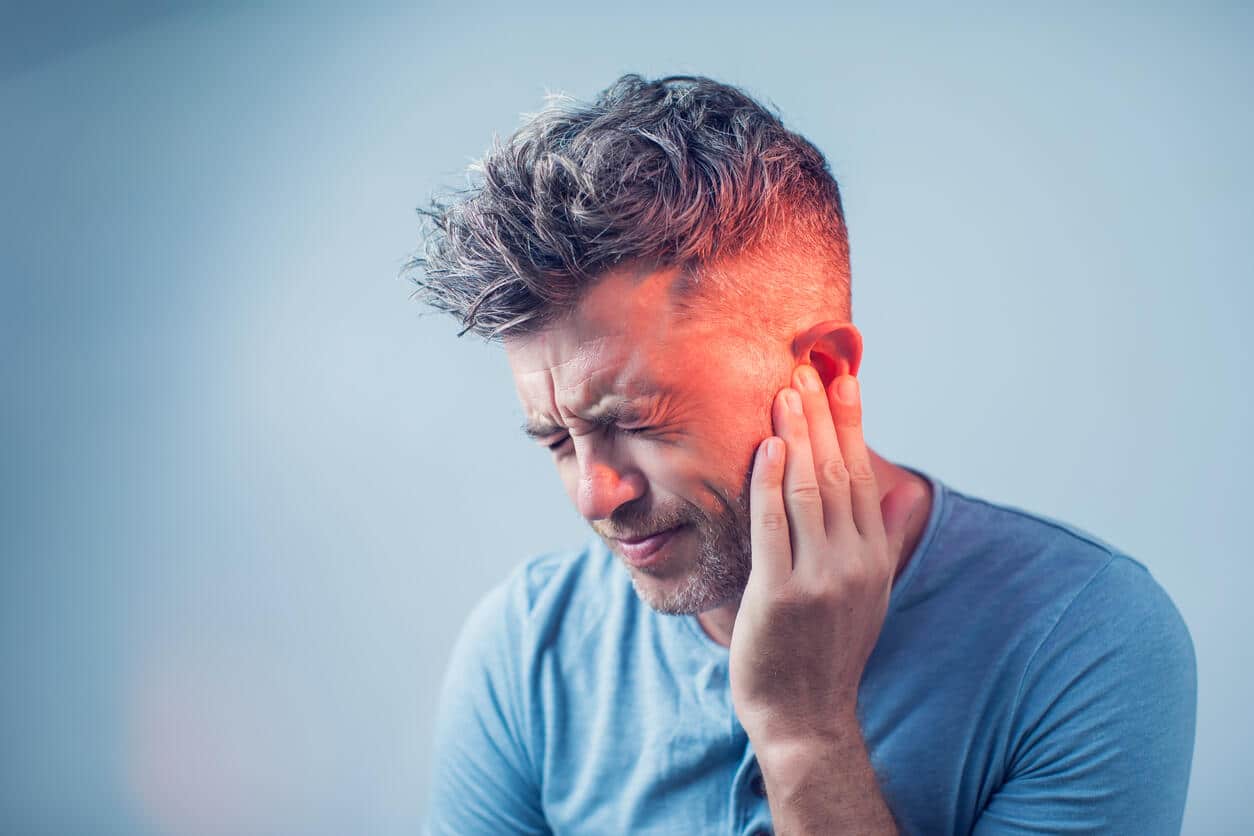If you are bothered by a persistent ringing in your ears, you are not imagining things – even if nobody else notices the sound. You are actually experiencing tinnitus, and you are far from alone! If you’re one of 10 people riding a bus in Bakersfield, then it’s safe to assume that one other person is also suffering from tinnitus. Approximately 20 percent of the U.S. population is afflicted to some degree.
What is Tinnitus?

Tinnitus is most commonly described as a ringing in the ears, but for some people, the sound is more reminiscent of a whooshing, roaring, whistling, clicking, or buzzing. Tinnitus isn’t an actual medical condition – rather, it’s a symptom of something else. The underlying cause may be attributed to aging, noise exposure, infections, allergies, earwax, foreign objects in the ears, or medications. Many times, the exact cause remains undetermined.
Tinnitus is classified as either subjective (heard only by the patient) or objective (heard by others). The latter type is extremely rare; most of cases are subjective. Similarly, tinnitus may be either pulsatile (a rhythmical noise that beats in conjunction with your pulse) or non-pulsatile. The vast majority of patients report non-pulsatile tinnitus.
Tinnitus Management Strategies
We hate to be the bearers of bad news, but there is no cure for tinnitus. Sometimes, treating the underlying cause will provide relief. Removing built up earwax or switching medications may be all that is needed to reduce or eliminate the problem.
Most treatment solutions involve management strategies. Noise suppression techniques are a popular and effective method. Electronic devices that produce “white noise” help to mask the underlying sounds and are especially helpful at night when trying to sleep. You can buy a white noise machine specifically designed for this task, but often a fan, air conditioner, or humidifier will help you achieve the same effect. Tinnitus retraining devices work in much the same way, but rely on programmed musical patterns delivered at specific frequencies to direct your brain’s attention away from the tinnitus.
Some people swear by natural remedies such as gingko biloba, zinc, and niacin, but there is no scientific evidence to back up their claims. Others find relief from antidepressants.
Other treatments for tinnitus include the following:
· Steroid Injections. Meniere’s disease is a balance disorder that often causes side effects such as tinnitus. Patients diagnosed with this condition often benefit from injections of a potent steroid called Dexamethasone.
· Surgery. Tinnitus caused by acoustic neuroma, a benign tumor, will often dissipate with surgical removal of the acoustic neuroma.
· Hearing aids. Tinnitus sufferers with hearing aids can turn up the volume to increase background sounds, effectively masking their tinnitus. They can also help the patient distinguish one sound from another, improving communication and helping with focus and concentration difficulties. Many hearing aids include features such as noise generators that utilize ambient sounds.
· Counseling. Counseling is useful in helping you manage your tinnitus symptoms by reducing stress, anxiety and sleeplessness that often accompany tinnitus.
If you’re bothered by tinnitus and looking for help, The House Institute can address your symptoms and improve your quality of life.